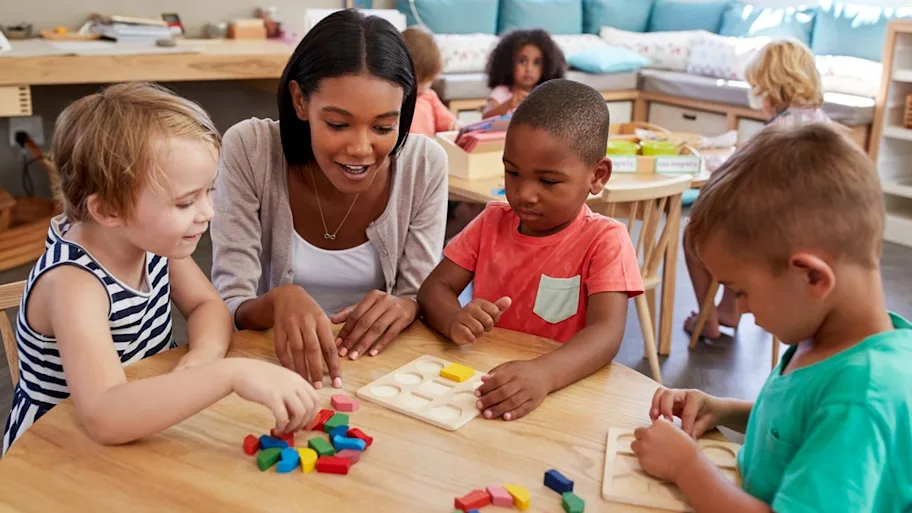
- Science News
- Psychology
- Montessori preschool boosts academic results and reduces income-based inequality
Montessori preschool boosts academic results and reduces income-based inequality

The Montessori method aims to develop both social and academic abilities in children. Image: Shutterstock
Montessori preschool boosts children’s academic performance and social understanding, while reducing differences between low- and high-income children
— By Conn Hastings
Children in Montessori preschools show improved academic performance and social understanding, while enjoying their school work more, shows a study in Frontiers in Psychology. Strikingly, children from low-income families, who typically don’t perform as well at school, were not disadvantaged in Montessori preschools, and showed similar academic performance compared with children from high-income families.
Good preschool education is crucially important. During the first six years of life, our brains develop significantly, and many of these changes can be permanent, so ensuring that children get a good head start could help them for the rest of their lives.
Performing well at school can be particularly challenging for certain groups of children. Children from poorer backgrounds tend not to perform as well as those from wealthier backgrounds. In addition, children with lower executive function, which is a measurement of skills that allow someone to control their behavior to achieve a goal, also tend to do worse at school and beyond.
While most children attend conventional schools, there are alternative approaches to education. One is the Montessori method, which aims to develop both social and academic abilities in children. In Montessori classrooms, children can move around freely and choose from a range of educational activities. Each classroom includes children of a variety of ages and there are no grades or rewards for performance.
“Montessori education started with very poor children in a housing project in Rome, over 100 years ago,” says Angeline Lillard, of the University of Virginia. “However, several of today’s most prominent entrepreneurs went to, and have publicly spoken about the influence of, Montessori schools.”
While previous research has suggested that the Montessori method is a promising educational approach, there is an overall lack of knowledge about how effective it is, and how it compares with conventional education.
In the study, Angeline Lillard and her colleagues compared educational outcomes for a large group of children in Montessori preschools or conventional preschools in Connecticut. The research team carried out a variety of assessments with the children over a three-year period, from when they were aged three until they were aged six.
“We found that children in Montessori schools did better overall than children in conventional schools,” says Lillard. “The greater gains in academic achievement for Montessori children were accompanied by greater gains in social understanding, stronger persistence on challenging tasks, and more enjoyment of academic tasks.”
Strikingly, the Montessori schools significantly helped low-income children to perform as well as wealthier children academically. Statistically, after 3 years in the preschool programs, low-income Montessori children performed as well as high-income children in both Montessori preschools and conventional preschools.
Similarly, the team found that children with lower executive function were not at a disadvantage in Montessori schools, and performed as well as those with higher executive function. These findings are in stark contrast with what the researchers found in conventional schools, where low-income children, and those with lower executive function, performed worse than their peers.
The team plans to figure out if all Montessori schools are as beneficial, or if only high-quality Montessori produces these effects. Another possibility is that Montessori schools attract better teachers, and future work will look at how Montessori teacher training programs affect educational outcomes.
The findings suggest that well-implemented Montessori education could be a powerful way to help children born at an economic disadvantage, or those with lower executive function, to achieve their academic potential. “The study is relevant for parents choosing what schools to enroll their children in, and for school districts in deciding what kinds of schools to offer,” says Lillard.
Original research article: Montessori Preschool Elevates and Equalizes Child Outcomes: A Longitudinal Study
Corresponding author: Angeline S. Lillard
REPUBLISHING GUIDELINES: Open access and sharing research is part of Frontier’s mission. Unless otherwise noted, you can republish articles posted in the Frontiers news blog — as long as you credit us with a link back to the original research. Selling the articles is not allowed.






